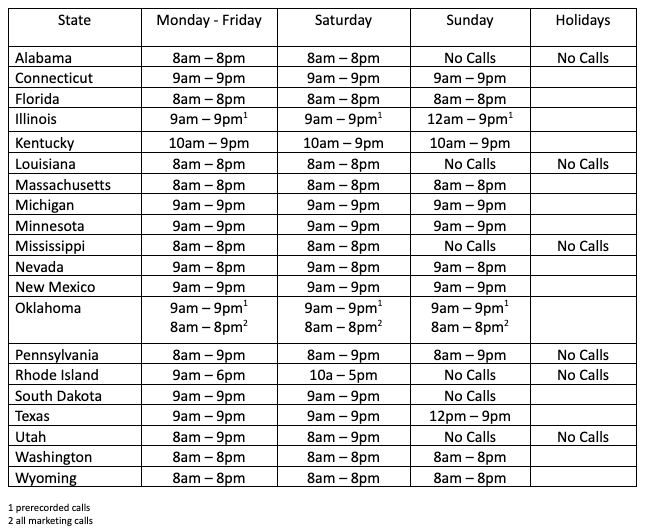8. Asking Questions
Asking questions is one of the best ways to connect with your prospects, uncover their needs and desires, and demonstrate your own expertise.
Listen carefully to their answers, and ask thoughtful questions to follow up. The first response a prospect gives is usually just the tip of the iceberg. It’s important to keep digging for more information, especially with more complex topics. It’s not that prospects are intentionally concealing information, it just may take some back and forth before you can be confident that you clearly understand their full thoughts.
A good rule of thumb is to aim for 80/20 them talking vs. you talking. Later in the sales process you’ll have to do a good portion of the talking, but it’s always important to ask high quality questions and be a good listener.
Whenever possible ask open-ended questions as this will help your prospects engage and share better information. From there, ask follow-up questions to dig in for more details. Here are some examples of open ended questions you can ask during an initial sales call:
- Can you tell me about your business and how we might be able to help?
- Who are your customers, and where do they come from?
- What are your desired outcomes with this project?
If you need more ideas, HubSpot has a great list of sales questions you can reference.
9. Comfort With Technology
Sales uses technology of all kinds, going well beyond CRMs. Most sales tech falls into various categories, including:
- Data networks
- Sales enablement or engagement
- Buyer enablement
- Performance management
- CRM software
- Communication
- …and more
While it’s unreasonable to expect every salesperson to know every tool, a familiarity with technology and the ability to learn new tools quickly is a must. If you’ve grown up in the digital age, this shouldn’t be too challenging.
When you’re presented with a new technology, be curious and tinker with it. This will help you begin to understand its full potential. Don’t expect powerful, feature-rich technologies to make perfect sense right out of the box.
You have to be willing to commit your time to learning how to get the most out of each piece of technology, especially your CRM. This isn’t time wasted; it’s guaranteeing your return on investment.
10. Collaboration
There are a variety of sales jobs, including:
- Account manager
- Sales development representative
- Business development representative
- Outside sales representative
- Sales support representative
All these roles work together to push prospects down the sales funnel. Being a team player who’s generous with resources means your entire sales team will perform their best.
Also, sales itself is inherently collaborative. You’re constantly working with prospects and clients to ensure their needs are being met. Learning how to set boundaries, while also being responsive and collaborative, will serve you well.
11. Deep Product Expertise
To create the best and most convincing pitch possible, you need to know your product better than anyone else. This includes features, benefits, developments, and even its weaknesses. You also need to understand how those qualities can directly improve the lives of your prospects.
Effectively communicating this knowledge will show clients that you’re an expert. People trust experts, so this builds their confidence.
Here are some qualities to know well:
- History of company or product
- Models or styles available
- Pricing
- Competition and your competitive advantage
- How best to use the product
It’s also valuable to know what your product won’t do or who won’t benefit from using it. Sharing this information helps qualify customers who really shouldn’t be talking to you in the first place (and won’t end up buying anyway). Being honest about this also builds trust and rapport while qualified customers (who will benefit from the product) hone in on exactly why they are a good fit.
12. Communicate With Clarity
While you should have a deep understanding of your product and its benefits, your customers are still in the learning process. It’s your job as a salesperson to explain how your product can solve their problems and alleviate their concerns.
Do your best to communicate clearly and simply. Don’t make assumptions about what your prospect already knows. Start from the beginning, break everything down, go slowly, and be receptive to any questions they may have.
This way, your potential customer will gain a detailed understanding of the benefits and solutions your product would provide.
13. Active Listening
Listening comes at different levels, the most advanced of which is active listening. In a nutshell, active listening means listening to hear what another person is saying without the intent to make your own point. You want to be attentive, empathetic, and fully engaged.
To practice active listening:
- Don’t let your mind wander. Focus on what the other person is saying.
- Avoid redirecting the conversation. Let the other person guide the discussion (of course, you’ll want to keep the conversation on track).
- Don’t think about what you’ll say next. Let it come naturally and instead focus on the other person while they’re talking.
- Maintain eye contact, lean in, relax, and don’t yawn or fidget.
- Avoid interruptions, even excited or empathetic ones. Let the other person finish.
For phone calls, you can show that you’re listening by making use of softening statements.
These are statements made after the prospect says something or asks you a question. They show the prospect that you’re listening and help build rapport. Examples are: “good question” or “I’m glad you asked that” or confirmation statements like “exactly” or “absolutely.”
By actively using these techniques, you’ll avoid missing crucial cues or bits of information. They’ll also help you build a relationship and prove you care about your clients’ needs.
14. Social Media Savvy
In this increasingly social age, social media is a business tool. Knowing your way around platforms like LinkedIn, Instagram, and Twitter will help generate business and conversion.
Consider building a personal brand across different socials that’s relatable and emphasizes your expertise. It’s a great way to build your network, land features, and increase your authority.
If your (positive) reputation precedes you, it can help close potential clients and even generate new prospects.
In terms of social selling, note that 47% of salespeople are able to fill their pipeline without using social selling. That number jumps to 65% for those who deploy social selling.
15. Resilience and Grit
Sales is a notoriously hard career path. Developing grit and resilience is essential to any salesperson’s long term success. According to Hubspot, 48% of salespeople never bother to follow up, but 60% of clients say yes only after having said no four times. Learn to see every “no” you hear as one step closer to a “yes.”
16. Negotiation
Negotiation is a crucial skill to learn if you’re going to be effective in sales. Chris Voss, perhaps the most famous negotiator and author of “Never Split the Difference,” outlines two types of negotiation:
- Distributive negotiation: in this case, both parties believe they’ll either win or lose, and that they must take it all to win. An example is haggling with a car dealer.
- Integrative negotiation: in this scenario, both sides feel they can reach a mutually beneficial solution. All parties believe they can add value for the other and that everyone can walk away happy.
Unless you’re a real estate agent or car dealer, you’re likely engaging in integrative negotiation. Study this type of negotiation and learn how to incorporate it into your sales skill set.
17. Trainable and Coachable
Lots of sales reps see sales training as a waste of time. However, statistics say otherwise. Companies with dynamic coaching programs achieve 28 percent higher win rates.
Sales is a skill that can be improved with time and coaching. No matter how experienced or effective you are a sales rep, you’ll always benefit from discussing techniques and strategies with your peers. It’s critical that salespeople stay receptive to feedback from others and willing to learn.
18. Adaptable
Customer demographics, tools, and engagement channels constantly change. To succeed in sales you must be able to adapt to new tools and practices.
Further, your industry is always evolving and markets are constantly changing. Some competitors get worse, others get better, and new ones can pop up overnight. You must be able to shift your approach.
Adaptability is made up of two components: versatility and flexibility. The former means you’re able to adapt, and the latter means you’re willing to change when the circumstances call for it.
19. Composure
Successful sales reps are both enthusiastic and composed. Composure helps make other people feel more comfortable, which is very important when it comes to sales. It communicates that the rep knows what they’re doing, which instills confidence. Composure also helps the rep to deliver a pitch that is concise and easy to follow.
Composure is different from self-confidence; you can be confident in yourself without remaining composed. Composure comes from having a well-rehearsed, established sales process that, with experience, becomes second nature. Comparatively, if you decide to “wing it” every day it can be a lot harder to remain composed when meeting with a prospect.
20. Presentation Skills
Sales presentations and demos not only demonstrate your command of what you’re selling, but they foster trust. Being engaging, clear, and articulate will help you better sell to prospects.
There are many different techniques for mastering a sales presentation, but here are some highlights:
- Send your presentation to the prospect before your call. This allows them to review the material and come prepared with meaningful questions.
- Focus on their problem more than your solution. This gives prospects a feeling that you understand them and positions you to better pitch your solution when the time comes.
- Leave the price for last. Many times, a prospect will want to talk about price early on in the call. Instead, try and leave this to the end. You can say something to them like “Let’s go over the details first so that we’re both on the same page about your needs, then go over pricing. This way, we can be sure the price accurately reflects your needs. Does that work for you?”
21. Understanding Human Psychology
The best marketing minds have a strong understanding of psychology. They learn what makes people tick. This is very effective because sales are usually based on how the prospect feels emotionally about the offer rather than objective facts.
A good example of this is through something called the “Pendulum Theory”.
As many great salespeople know, pushing a prospect to buy just makes them push back harder. When this happens, no one makes any progress.
So instead of pushing them in the direction you want them to go, try pulling them away from it and then letting go. Suddenly, your discussion will become a dance. Like a pendulum, your prospects will swing back the other way toward the direction you want them to go.
This especially works with cold prospects who aren’t giving you positive signs on a sales call. Send them a polite but negative comment such as “Correct me if I’m wrong but it doesn’t seem like you think you’d benefit from this product at all.” Their instinctive reaction will be to push back with a positive statement. This may also help uncover a concern of theirs that’s leading to their demeanor and otherwise wouldn’t have surfaced. For instance, they’ll respond by telling you “Well I think the product is incredible but I’m just worried about the durability.”
Now you’re making progress and can handle that objection accordingly.
22. Empathy
If you’ve ever encountered a sleazy salesperson after your money, you know how unpleasant that experience can be. The best salespeople out there are selling because they genuinely want to solve a prospect’s problem.
While you should feel excited about and proud of your solution, your reason for pitching is buyer-centric. Don’t just understand this; truly take it to heart. Empathy is contagious and the more your prospects see that you care about their outcome, the more honest and transparent they’ll be with you.
23. Value Downtime
A fairly common theme among successful people in all fields is not just that they work hard, but they also switch off sometimes.
It is very important to slow down and recharge the batteries both physically and mentally. It’s also important to spend valuable time with family and other people we care about.
A salesperson who is refreshed is going to be far better prepared than somebody who isn’t. It might seem counterintuitive, but pushing yourself constantly is only going to make you less successful in the long term.
The risk of burnout is real. Always take time to sharpen the saw.
24. Organized
Sales professionals undertake many tasks and staying on top of them can be challenging. Staying organized is the only way you’ll be able to get it all done.
Some of the many tasks include:
- Market research
- Negotiation with prospects
- Monitoring competitors
- Prepare strategies and action plans
- Lead generation and qualification
- Develop client referrals
- Follow up with prospects
- Ensure happy clients and positive relationships
Develop systems for managing these tasks. If you try to commit everything to memory or just try to wing it, tasks will fall through the cracks. In sales this means money falls through the cracks.
25. Public Speaking
Remember those sales demos and pitches we talked about? In line with presentation skills is public speaking. A crucial sales skill, public speaking doesn’t always come naturally.
Here are some tips for improving your public speaking:
- Talk slower. Many people get nervous and talk quickly, making it difficult for your audience to take it all in.
- Stop fidgeting. When we get anxious, our body can start doing nervous ticks, including tapping your foot, wringing your hands, or swaying back and forth. Monitor your body language and be as natural as possible.
- Maintain eye contact. While it’s tempting to look at the presentation or your feet, remember to look out at your audience. This conveys confidence.
- Rehearse… and then rehearse again. You can never over-practice. Come demo day, your presentation should be second-nature.
- Practice while distracted. If you can nail a presentation when the TV is on or while you’re cleaning the house, then you can do it while focused on your audience on the actual day.
26. Post-Sale Skills
In many cases, getting the deal is not the end of the process. Maintaining the relationship can often lead to more sales in the future.
To help encourage further sales, make maintaining a good relationship with your customers a priority. If you’re only around when you’re trying to sell something, the customer will sense that your relationship is not authentic.
That’s why it’s a good idea to keep in touch, even after a close. When the time comes, your customer will then be more likely to agree to another deal.
A simple way to accomplish this is by checking in with customers after you’ve sold something to get feedback, see if they have issues, etc. Sales reps in b2b don’t do this nearly enough but it’s like a cheat code for those who do, and customers love it.
27. Growth Mindset
Successful sales reps learn from their mistakes and are receptive to feedback. This is called a growth mindset. Sales is a skill that takes time to develop, so go into it expecting to learn and grow.
28. Closing the Deal
While it’s typically sales leaders and more senior teammates who close, this is a skill anyone in the sales cycle should work on. Closing a sale means:
- Getting expectations aligned. This includes asking questions about your prospect’s budget, timeline, and more to ensure they can buy into your product.
- Pitching a solution. Rather than focusing on your product, focus on your prospect’s problem and how you can solve it.
- Respond well to a potential client’s concerns. Listen to what your buyer has to say, don’t argue over objections, and be sure to respond calmly and reasonably.
- Convey reasonable urgency. Urgency, whether involving time or money, helps push a deal along.
- Final steps. This includes finishing paperwork and offering your new client resources, so they can get the most out of your product.
29. Customer Service
Closing a sale can feel like crossing the finish line, but for the customer the journey is just beginning. Try to provide A+ customer service to your clients, as it’s the best way to cultivate client referrals, loyal customers, and repeat business.
30. Conflict Management
Sales is full of rejections, complaints, and conflict. While unpleasant, as a sales professional it’s your job to handle these swiftly and politely. Your goal is to keep your client happy.
There are five different conflict management approaches, including:
- Accommodating
- Compromising
- Avoiding
- Competing
- Collaborating
When handling conflict, remember to focus on the facts, give everyone a chance to voice concerns, be empathetic rather than confrontational, and maintain focus on the client. If conflicts go as far as stepping on common ethical practices, you can use your organization’s whistleblowing systems to anonymously raise these concerns.
Conclusion
Sales is notoriously difficult, but it can also be extremely rewarding. If you thrive under pressure, enjoy hitting targets, and communicate well with others, you might find sales is a perfect fit.
Practice getting better at these 30 critical sales skills, and you’ll be well on your way towards a successful career in sales.
Hungry for more? Learn the in’s and out’s of successful sales teams with our self-paced workshop


